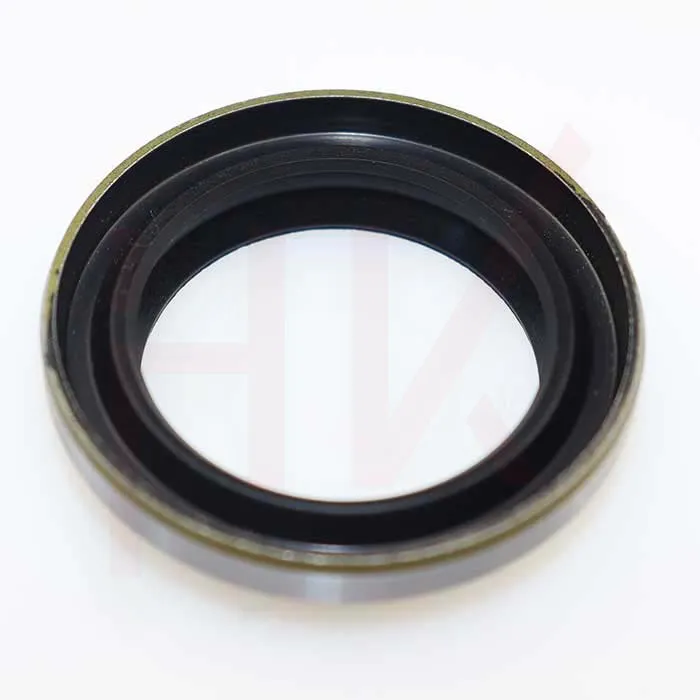12 月 . 03, 2024 18:52 Back to list
hydraulic cylinder seals and wipers
Understanding Hydraulic Cylinder Seals and Wipers Essential Components for Efficiency and Longevity
Hydraulic cylinders are critical elements in various industries, powering equipment ranging from construction machinery to manufacturing systems. At the heart of the hydraulic cylinder’s functionality are seals and wipers, which play vital roles in ensuring operational efficiency, reliability, and longevity. This article delves into the importance of hydraulic cylinder seals and wipers, the functions they perform, and key considerations for their selection and maintenance.
The Role of Seals in Hydraulic Cylinders
Seals in hydraulic cylinders are designed to prevent fluid leakage while maintaining the pressure necessary for the cylinder’s operation. There are several types of seals used in hydraulic applications, each serving specific functions
1. Dynamic Seals These seals are used where there is relative motion between the sealing surfaces. An example is the piston seal, which ensures that hydraulic fluid does not leak from the cylinder as the piston moves. Dynamic seals must be robust enough to withstand high pressures and varying speeds, while also minimizing friction to ensure smooth operation.
2. Static Seals These seals are employed in areas where there is no movement, such as between the cylinder head and the barrel. Static seals must prevent hydraulic fluid from leaking out while also resisting the damaging effects of pressure and temperature changes.
3. Rod Seals Found in the cylinder rod, these seals prevent fluid from escaping as the rod extends and retracts. Rod seals must perform well under dynamic conditions, as they are subject to constant movement.
The selection of the appropriate seal type is crucial for ensuring the hydraulic system's effectiveness. Factors such as pressure rating, environmental conditions, and compatibility with the hydraulic fluid must be taken into account.
The Role of Wipers in Hydraulic Cylinders
While seals focus on preventing fluid leakage, wipers play a different but equally important role. Wipers are located at the external ends of hydraulic cylinders and are designed to keep contaminants, dirt, and moisture out of the cylinder. This function is critical for prolonging the life of the seals and the entire hydraulic system. Here are some key features of wipers
1. Contaminant Exclusion Wipers are engineered to scrape away debris and contaminants as the rod retracts into the cylinder. This action prevents abrasive materials from entering the hydraulic chamber, thereby reducing wear on the seals and ensuring optimal performance.
hydraulic cylinder seals and wipers

2. Moisture Prevention Wipers can also help to prevent moisture ingress, which is vital in protecting the hydraulic fluid from degradation and ensuring that the entire system operates efficiently.
3. Longevity of Components By keeping contaminants and moisture at bay, wipers contribute significantly to the longevity of hydraulic cylinder seals. A clean operating environment minimizes wear and tear, reducing the frequency of maintenance and replacement.
Selection and Maintenance Considerations
When selecting seals and wipers for hydraulic cylinders, several factors should be considered
1. Material Compatibility The material of the seals and wipers must be compatible with the hydraulic fluid being used. Common materials include polyurethane, rubber, and PTFE, each offering varying levels of resistance to pressure, temperature, and chemical attack.
2. Operating Conditions Consider the operating environment, including temperature ranges, exposure to chemicals, and the presence of contaminants. These factors will influence the choice of materials and design.
3. Design and Dimensions Proper dimensions are critical for achieving a tight fit and ensuring effective sealing. Manufacturers often provide guidelines on sizing to ensure optimal performance.
Regarding maintenance, regular inspection of hydraulic cylinders is essential. Signs of seal wear or damage, as well as evidence of contamination ingress, should be addressed promptly. Maintaining optimal fluid levels and replacing seals and wipers as needed will help keep the hydraulic system functioning properly.
Conclusion
Hydraulic cylinder seals and wipers are indispensable components that significantly influence the performance and longevity of hydraulic systems. By selecting the appropriate seals and wipers and maintaining them properly, organizations can achieve enhanced operational efficiency, reduce downtime, and avoid costly repairs. In a world that relies heavily on hydraulic technology, understanding these components is vital for anyone involved in the design, maintenance, or operation of hydraulic systems.
-
The Power of Advanced Sealing: High-Pressure Solutions for Modern Machinery
NewsOct.29,2024
-
Optimizing Machinery with High-Performance Oil Seals
NewsOct.29,2024
-
Maximizing Machinery Efficiency with Advanced Oil Seals
NewsOct.29,2024
-
Ensuring Equipment Longevity with Quality Oil Seals
NewsOct.29,2024
-
Enhance Equipment Performance with Quality Oil Seals
NewsOct.29,2024
-
Custom Oil Seals for Specialized Machinery Needs
NewsOct.29,2024
-
The Role of Wiper Seals in Dust Sealing and Oil Protection
NewsOct.20,2024
Products categories
















